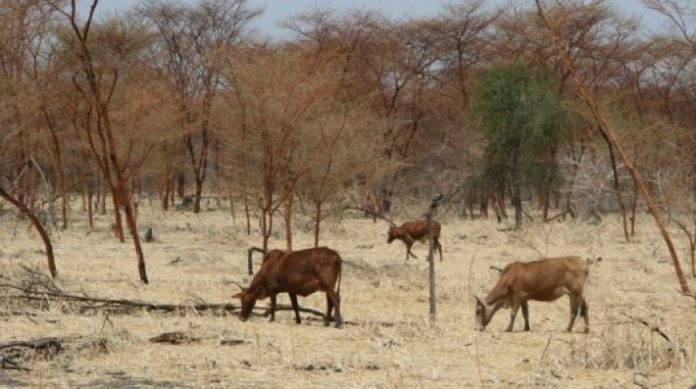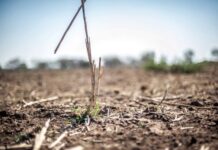Since the 1950s, innovations like synthetic fertilizers, chemical pesticides and high-yield cereals have helped humanity dramatically increase the amount of food it grows.
But according to the United Nations Environment Programme (UNEP), those inventions would be moot without agriculture’s most precious commodity: fresh water.
“Pollution, climate change and over-abstraction are beginning to compromise the lakes, rivers, and aquifers that underpin farming globally. That is raising the spectre of widespread food shortages – a situation made worse by the Ukraine crisis,” it said in a press release released Tuesday.
“For two-plus generations, now, humanity has lived in a relative time of plenty,” said Leticia Carvalho, head of the United Nations Environment Programme (UNEP) Marine and Freshwater Branch. “But we’re undermining the freshwater resources that make it possible for us to grow crops. And if we keep doing that, the consequences could be severe.”
It added that the amount of freshwater per capita had fallen by 20% over the last two decades and nearly 60 per cent of irrigated cropland is water-stressed, says the Food and Agriculture Organization of the United Nations.
The implications of those shortages are far-reaching: irrigated agriculture contributes 40% of total food produced worldwide.
“Research shows that global warming is sparking longer-lasting droughts, like the record-setting dry spells that have gripped East Africa and the Western United States. This, say experts, is a prime example of climate change in the flesh,” UNEP added.
It said according to the Global Land Outlook, a report by the United Nations Convention to Combat Desertification, over one-third of the world’s population currently lives in water-scarce regions.
At the same time, global warming has been blamed for increasingly severe flooding, as seen recently in India and Bangladesh, with dire consequences for farmers.
According to UNEP, groundwater supplies 43% of the water used for irrigation. But improvements in drilling technology over the last few decades have led to its unsustainable extraction in parts of the world, such as India.
The Food and Agriculture Organization of the United Nations (FAO) estimates that 10% of the global grain harvest is being produced by depleting groundwater resources.
Sound management practices and technological advancements, like drip irrigation, can lessen the pressure on groundwater reserves, say experts.
Intensive irrigation can lead to a rise in the water table, siphoning salt into the soil and the roots of plants, affecting their growth.
As well, the overuse of groundwater can combine with climate-change-induced sea-level rise to cause saltwater to penetrate coastal groundwater aquifers. This can damage crops and their yields and affect drinking water supplies.
UNEP estimates that around one-tenth of rivers around the work are affected by salinity pollution.
In some arid areas, there has been an increase in the amount of wastewater used to grow crops. Pathogens in that water can cause cholera or diarrhoea, though farmers are often not aware of those potential consequences. (Washing or boiling vegetables greatly reduces the risk of illness.)
The problem can be exacerbated by flooding, which can inundate sewage systems or stores of fertilizer, polluting both surface water and groundwater. Fertiliser run-off, can cause algal blooms in lakes, killing fish. Storm run-off and forest fires are further risks to farming and food security.
Pollution is also seeping into groundwater, with potential long-term impacts on crops, though more research is needed to establish the precise effects on plants and human health.
Humanity has altered more than 70 per cent of the Earth’s land area, causing what the Global Land Outlook called: “unparalleled environmental degradation”. In many places, the ability of soils to store and filter water is waning, making it harder to grow crops and raise livestock. If current land degradation trends continue this century, scientists predict that there could be disruptions to food supplies, says the report.
Extreme weather caused by climate change, like heavy rains followed by periods of drought, can accelerate land degradation.
UNEP said adopting drip irrigation and other means of increasing water use efficiency, a target within the 2023 Agenda for sustainable development, would help reduce demand on freshwater supplies worldwide. Another approach that can help – and is being promoted by UNEP and others – is the improved management of water resources.








